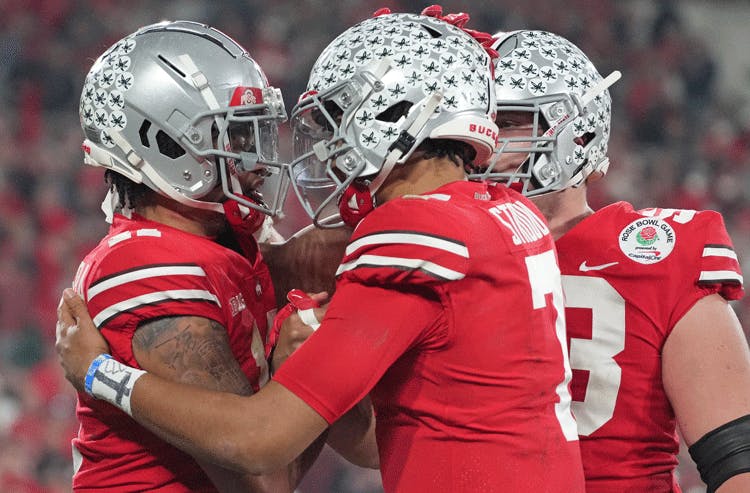An Emerson College poll taken last week suggests that just 15% of voters are planning to place a bet via a legal sportsbook in Ohio when they go live on Jan. 1, 2023.
The survey found that 4% of respondents intended to wager using an online sportsbook, 3% expect to place in-person bets at a casino or sporting venue, and 8% expect to do both.
"The intention to bet legally is higher among male voters,” said Spencer Kimball, executive director of Emerson College Polling, in a statement accompanying the release of the poll. “20% of men plan to bet in some capacity compared to 12% of women voters.”
The poll was taken to gauge expected demand for legal sports betting services with just over three months remaining before their official January 1 rollout in the Buckeye State. The results also dovetail with findings from last week's nationwide Pew Research Center poll, which reported that 19% of U.S. adults had placed sports bets within the last year via an online betting app, in person at a casino or other retail outlet, or with friends or family.
Major sportsbooks poised for success
Ohio ranks as the seventh-most populous state in the U.S. with almost 12 million residents and is likely to emerge as one of the nation's bigger sports betting markets by the end of next year.
The presence of multiple professional sports teams in the state and their partnerships with well-known national sportsbooks could also be a major factor in stimulating sports wagering among fans.
Ohio is home to seven major pro sports franchises, including the NFL's Cincinnati Bengals and Cleveland Browns, the NBA's Cleveland Cavaliers, the MLB's Cleveland Guardians and Cincinnati Reds, and the NHL's Columbus Blue Jackets. There is a perennial college football powerhouse in the state as well, the Ohio State Buckeyes.
A previous Emerson College poll in July suggests that DraftKings and FanDuel are primed to take advantage of their existing daily fantasy sports customer base in Ohio. Nearly 25% of respondents to the survey already used the DraftKings app, and over 17% already used FanDuel.
Name visibility also plays into this natural advantage. When poll respondents were asked to name three U.S. sportsbooks, DraftKings topped the ranking by being listed by 36.8%, as compared to 27.1% for FanDuel, 22.9% for BetMGM, and 14.8% mentioning Caesars. The only other sportsbooks cited in more than 2% of responses were Barstool (3.7%) and FOX Bet (2.4%).
Plenty of room
Sports wagering demand among Ohioans has been steadily building up momentum ever since Gov. Mike DeWine signed into law House Bill 29, legislation that legalized sports betting in Ohio, on December 22 of last year. The signing followed three years of intense wrangling at the state legislature, which finally resulted in a relatively expansive and welcoming sports-wagering regime in the state.
The first indication of this came earlier this month when the Ohio Casino Control Commission approved a pile of sports-betting licenses. Several professional sports teams were approved to offer sports betting as of January 1, including the Cleveland Browns (who have partnered with Bally Bet) and the Cincinnati Reds (BetMGM).
The commission has also handed out an additional 300 Type-C licenses to restaurants, bars, bowling alleys, golf courses, and other venues that want to offer on-site betting kiosks.
In addition, several casinos have already been approved to begin on-site operations in the state, including the Hollywood Casino Toledo, partnered with DraftKings (and owned by Penn Entertainment), and Hollywood Gaming at Mahoning Valley (PointsBet).
Under the terms of Ohio's sports betting legislation, each casino or sports franchise is entitled to partner with as many as two online sportsbooks.
Money is already flowing into state coffers from professional sports teams and casinos that have already been licensed to operate. To date, $9.6 million in non-refundable sports betting application fees have already been collected by the state.
State officials estimate that sports betting revenue will top $1 billion in 2023, a figure expected to grow to $3.35 billion by 2025.




















